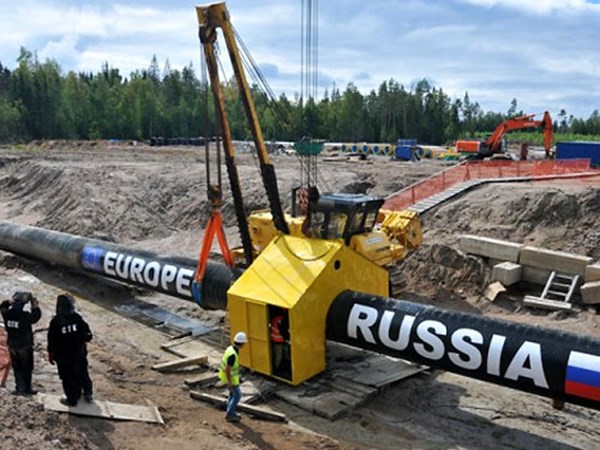German lobbyists ask Washington not to pursue sanctions against Nord Stream 2
The Committee on Eastern European Economic Relations, an organization that lobbies for the interests German companies operating in Russia and Eastern Europe, appealed to prominent representatives of the U.S. Democratic Party with a request to abandon new, extraterritorial sanctions against the Nord Stream 2 gas pipeline. The letter is addressed to the Speaker of the U.S. House of Representatives Nancy Pelosi and other well-known Democratic politicians, reports the newspaper Handelsblatt. As the newspaper notes, the authors of the letter hope that the change of administration in Washington will help to defuse the situation around the pipeline.
In their message, the chairman and executive director of the Eastern Committee, Oliver Hermes, and Michael Harms, ask that work currently underway in both houses of Congress on the new PEESCA (Protecting Europe's Energy Security Clarification Act of 2020) be suspended, which is supported by both major American parties.
The authors of the letter warn that if the United States "intends to continue its efforts to destroy the almost completed Nord Stream 2 project, or to further increase them with the help of PEESCA", it will not only cause significant economic damage, but also undermine the sovereignty of Germany and the European Union.
"If the EU fails to defend its sovereignty and American MPs eventually decide on sanctions against European economic projects, democracy in Europe will suffer significant damage, and the transatlantic partnership at the very beginning of Joe Biden's term will be greatly burdened," German lobbyists warn, urging the US authorities "not to force the EU to continue discussing counter-sanctions against the United States, which is already intensively underway."
In late October, the United States extended sanctions against the Nord Stream 2 project not only to pipe-laying ships, but also to companies providing various services to these vessels.
Initially, the gas pipeline, which is being laid from Russia to Germany along the Baltic Sea, was planned to be commissioned by the end of 2019. However, in the summer of the same year it became clear that Gazprom was behind schedule and would not be able to fulfill the planned project. In December the project was fully halted, as foreign pipe-laying ships refused to participate in it because of the threat of U.S. sanctions.
